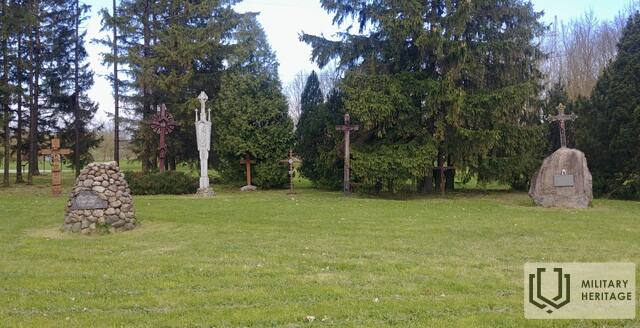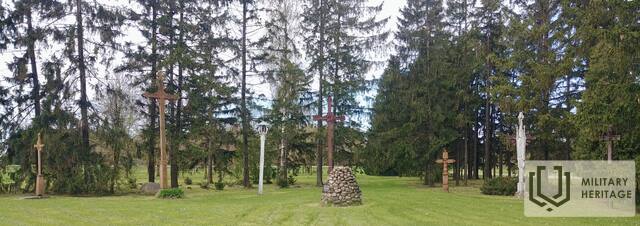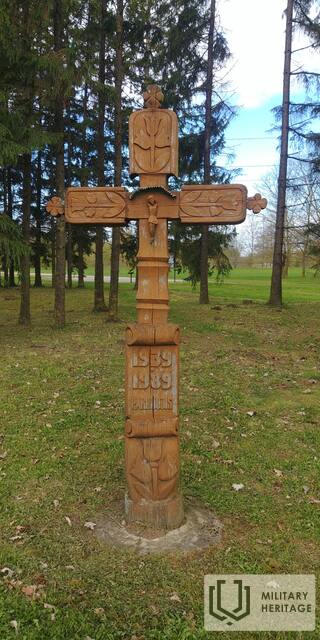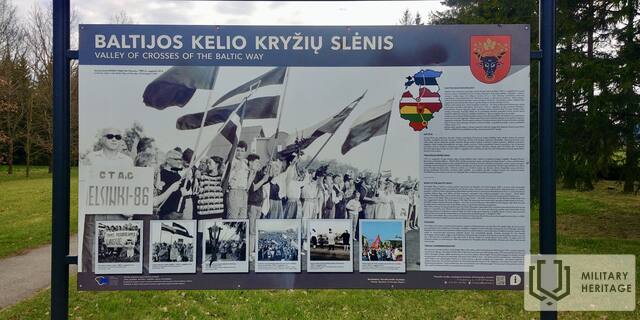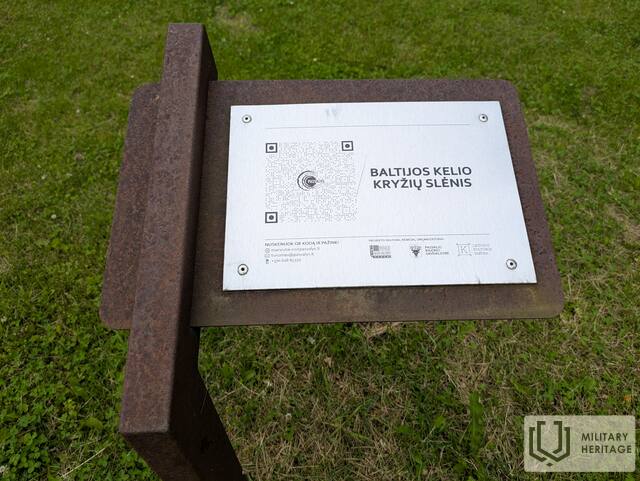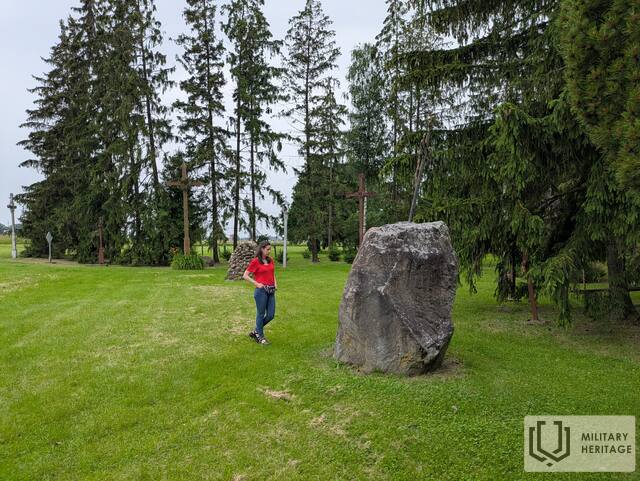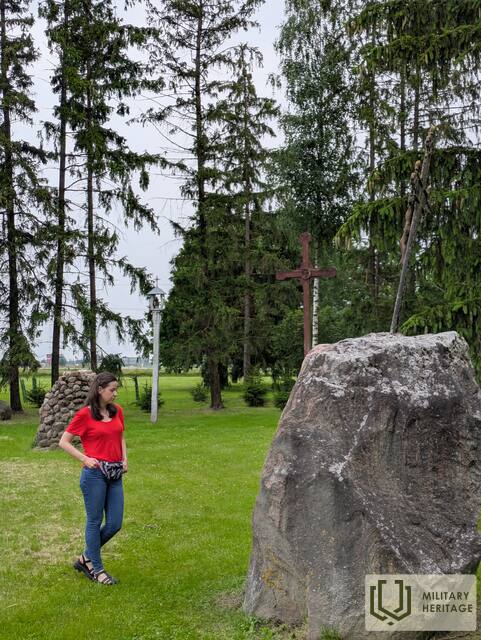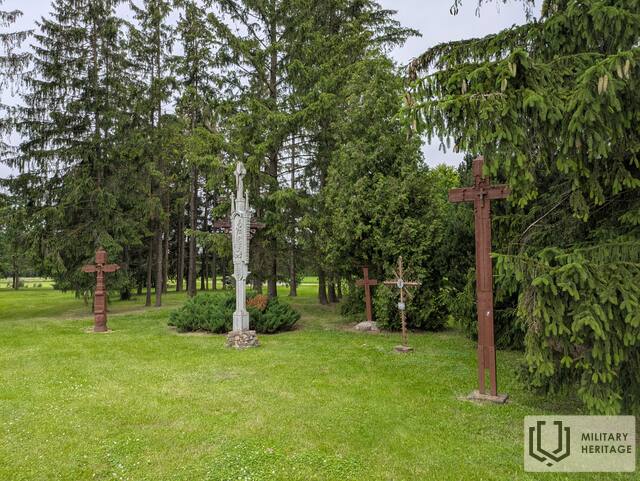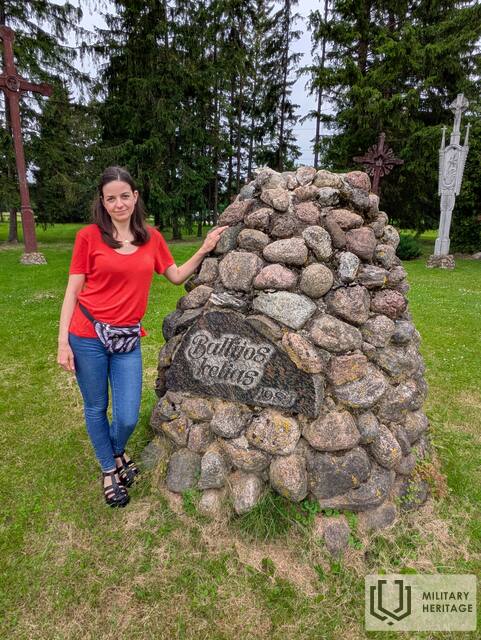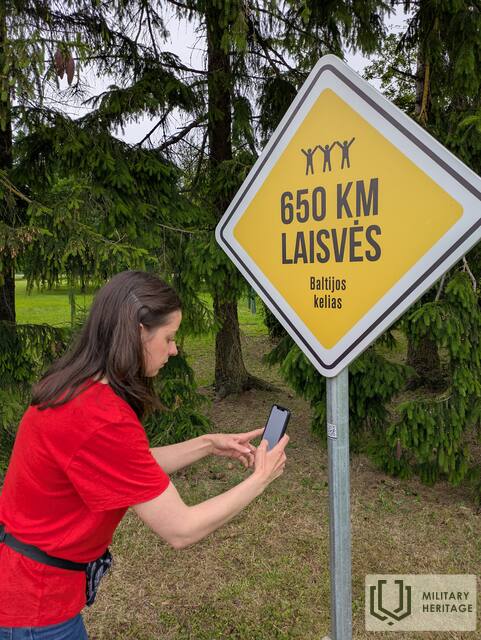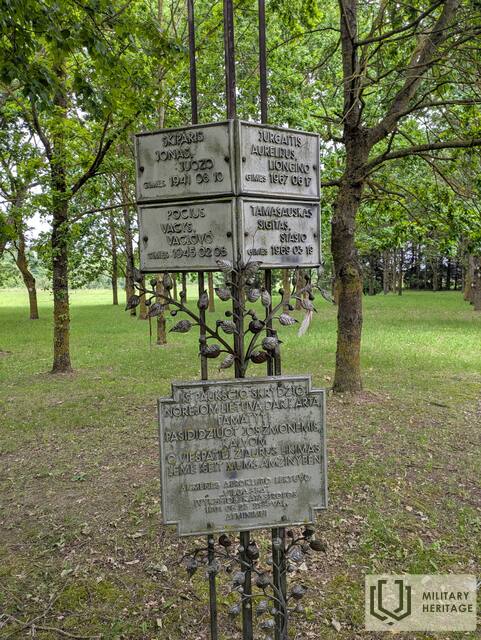Cross Valley to Commemorate the Baltic Way
Memorial site

 182
182




The Cross Valley to Commemorate the Baltic Way memorial is located on the eastern outskirts of Pasvalys on the Via Baltica motorway (E67, A10).
On 23 August 1989, to commemorate the occasion of the 50th anniversary of the signing of the criminal Molotov-Ribbentrop Pact and its secret protocol, based on the initiative of the Lithuanian reform movement “Sąjūdis”, the Latvian People’s Front and the Estonian People’s Front, a live human chain linked the capitals of the three Baltic states – Vilnius, Riga and Tallinn. Holding hands, approximately two million people joined together in a living chain that was about 650 km long. This chain, known as the Baltic Way, is one of the most remarkable and memorable events on the road to independence of the countries occupied
by the Soviets.
To commemorate this event, memorial signs have been erected along the Baltic Way route (Vilnius-Ukmergė-Panevėžys- Pasvalys-Saločiai). The Cross Valley to Commemorate the Baltic Way is one of the monuments dedicated to this memorial route. The history of Cross Valley began on the eve of the Baltic Way when the residents of Pasvalys started using boulders to build the Altar of Freedom. On 23 August, the crosses were installed in the valley by the participants of the Baltic Way from Pasvalys, Akmene, Joniškis, Kretinga, Mosėdis, and Pakruojis. Later, crosses were erected to commemorate important events and
people of note, as well as crosses dedicated to the friendly Norwegian and Swedish people.
Used sources and references:
"Baltic Road Sign Site", Register of Cultural Properties, available online: https://kvr.kpd.lt/#/static-heritage-detail/c5f2d9f2-ea89-4cbe-b75f-11c3ecccd560
Rupšytė Angonita, "August 23, 1989 - The Baltic Road", Seimas of the Republic of Lithuania, available online: https://www.lrs.lt/sip/portal.show?p_r=38090&p_k=1&p_a=1710&p_kade_id=9 .
Related timeline
Related stories
Source: Memorandum for Baltic Way organizers
Documents related to the organization of the Baltic Way in 1989 are presented, revealing the organizational concerns of the campaign, its symbolic details, and their meanings.
Source: Living Testimonies of the Baltic Way
Through the eyes of journalists, the film tells the story of the impressions and emotions of the participants of the Baltic Way in 1989, and the shared experiences of Lithuanians and Latvians that day.
The Baltic Way: for memory and study
The Baltic Way, which took place in 1989, continues to receive attention even more than 30 years after the event. New monuments are being built, commemorations and exhibitions are being organized. One of the initiatives is the inclusion of the documentary heritage of the Baltic Way in the UNESCO International Register of the Memory of the World.




